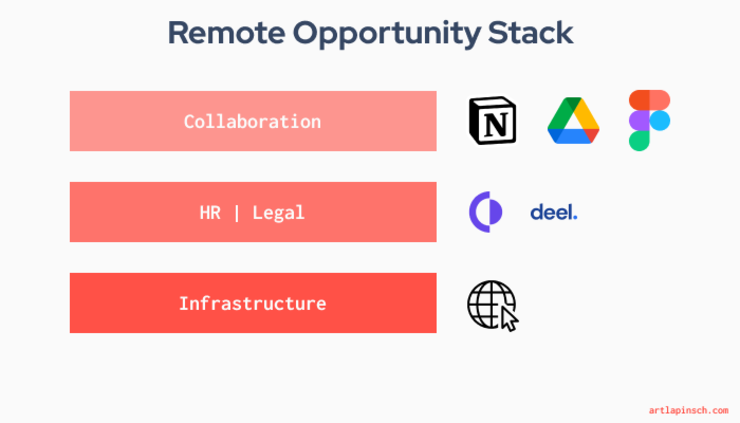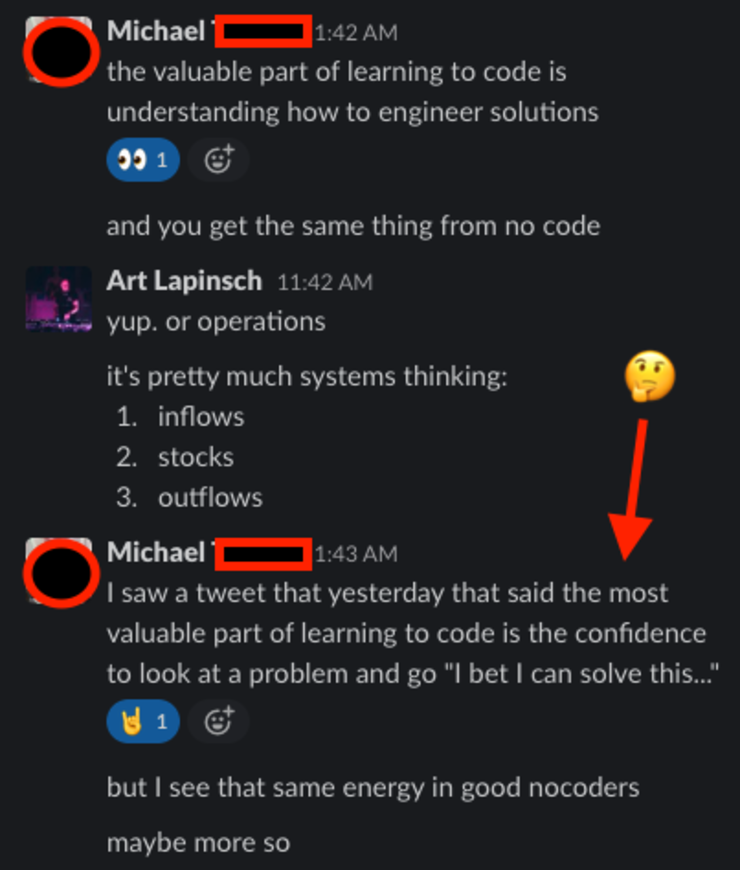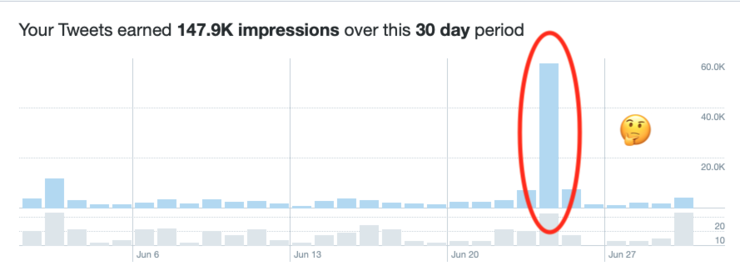The Remote Game: Next-Level Opportunity 🎮 - Issue #23

Hi y'all 👋
after a two week-long hiatus we are back in action.
Why the pause?
- My GF and I attended two weddings on the same weekend. Separately. Lot's of travel ✈️
- Congrats to Maria & Jan and Luise & Mo 🥂
- It's summer and people have better things to do than reading a newsletter ☀️
...
Focus this week: Remote as a Cheat Code for Your Career
I am reading and thinking a lot about all things remote.
One of the coolest ideas was how remote can unlock economic opportunity.
Let's dive into the 🐇🕳
🏔 So Far Yet So Close 🌐
Last week I visited a friend in Switzerland.
I expected the following:
- 🏔 Mountains
- 🐄 Cows
- 🧀 Cheese
I wasn't disappointed.
What I didn't expect was the fastest broadband connection I've ever heard of.
The internet is an enabling technology allowing information exchange between all its participants.
Think of these two modes:
- 📖 Read: Consumption of information.
- ✍️ Write: Creation of information.
workers whose main capital is knowledge
Good news for knowledge workers.
Now you can provide your services to the entire audience of the internet.
If I can reach you with my newsletter then you can provide your skills to an employer via the internet too.
Remote Opportunity (Level 1): Global Employment 🌎
A couple years ago remote was a fringe idea and employers had many challenges:
- Communication: How can I communicate with a distributed team?
- Collaboration: How can I get work done with a distributed team?
- Employment: How can I employ a distributed team member while staying legally compliant?
The answer a couple of years ago: "We can't!"
The answer today is something like: "We communicate via Slack, we design in Figma, and we employ you via Remote.com"
The problem is that many employers are still stuck in the "old reality" and don't have an updated picture of the possibilities.

[Deep Dive] Remote Employment Tools
I remember back in 2015, employing a team member who is not in the same location as you was a logistical and legal nightmare.
- ⚖️ Employment Law: Each country and/or state has specific laws concerning employment, termination, etc.
- 💰 Employment Tax: Each country and/or state has specific tax rates for employment + employment of a single person can incur a tax obligation for your company (i.e. I hire you in Germany, but also I have to pay XX% corporate income tax in Germany because I now have "a tax residency" in that country)
- 🏝 Employee Benefits: Each country and/or states has statutory employee benefits (minimum vacation days; sick days; 13th/14th salary; etc.) + depending on you HQ location you might even be required to have a 'non-discriminatory' (i.e. standardized) benefits scheme across states/countries which would mean that the highest benefits bracket of a state/country could become the smallest common denominator for your global workforce
- 💸 Salary Remittance: Wiring salary from one currency to another can be cumbersome and very costly
- ... the list goes on
Luckily HR/Legal infrastructure has come a long way and there are service providers who serve as infrastructure providers on top of infrastructure providers.
Incentives in Complex Systems
(e.g. non-harmonized local legislation for tax/employment/etc.)
(e.g. Quaderno; Remote.com; Wise)
This looks like a reinforcing loop. 🔁
Bad for local infrastructure.
Good for end customers like us.
Remote employment in 2021 is much easier than it was even five years ago.
Some of the most interesting players in this space are:
They charge a monthly service fee and take care of all the complexities of global employment ✅
Bottomline: If an employer tells you it's impossible to hire remotely because of "legal" you can show them this list 🙄
Perengo Case Study: 2015 - 2019
In our previous company we had a team of 15 people joining from 11 different cities (across 9 time zones).
Physical location matters less and less.

🌍 It's less about where you are.
🌐 It's more about which opportunities you have access to.
Why would you be interested in global opportunities vs. local opportunities?
Imagine you like FinTech but are not living in any of the major FinTech hubs (SF, NY, London, Berlin).
In a pre-remote world this means "tough luck".
In a remote world this means "please apply".
...
This is level 1 of the remote opportunity.
If you are not already playing level 1 and want to explore opportunities, check this remote-focused job board.
Remote Opportunity (Level 2): Liquid Entrepreneurship 🌐
Last week I read another great piece by Packy McCormick called "The Cooperation Economy".
This idea caught my attention:
Liquid Employment
Maybe because I’m a full-time newsletter writer and don’t work for a company anymore, but I can’t shake the idea that careers will become a lot more fluid in the years to come.
Pre-COVID, showing up to the same office every day made it hard to work for a second employer. But when another job is just a Slack workspace away, it becomes much easier to work multiple part-time jobs.
This flexibility will significantly increase the opportunity cost of choosing an exclusive employer. Every decision to spend four years vesting at one company will mean shutting off hundreds of other opportunities.
Investors would never choose to invest in just one company; the risk is too concentrated. Instead, they build portfolios. Over time, workers will invest their time in a similar way.Currently, liquid employment is largely impractical for workers and employers alike. But the same thing could have been said about remote work at one point. Spreading risk over a few companies makes sense for employees. That means that the companies that want an edge to hire the best people for a given role will eventually adopt it.
The big idea: Creating a portfolio of concurrent career bets instead of locking in a path with a single company.
Let this sink in.
🤯
That's a pretty wild idea.
Liquid Super Teams
In the context of liquid employment Packy talks about liquid super teams:
Liquid
Earlier this year, my friends Mo, Tosh, and I had a discussion along similar lines.

So 💯
— Art Lapinsch 🔋 🌳 🛡 (@artlapinsch) February 9, 2021
Reading more about the creator economy I could see a shift from bundled productivity units (org) to atomic productivity units (solopreneur).
I could see a similar shift in work patters as we’ve seen w/ co-located vs. remote
Think of the following:
— Art Lapinsch 🔋 🌳 🛡 (@artlapinsch) February 9, 2021
We three dedicate 6-12 months to get a project from idea to running ops.
_product tested
_first revenues incoming
_ops/processes automated via (zapier/etc.)
_hire team (if needed)
incentive is equity + % of cash flows down the road.
I think the angle "has always been done but now easier also to do as individuals" is spot on
— Thomas Schranz 🍄 (@__tosh) February 9, 2021
The gist here is that there is a convergence of many trends, which allow for previously-impossible entrepreneurial opportunities:
- 🌐 Remote: Ability to collaborate globally
- 🤖 Tech: No-code tools, building blocks, primitives, etc. make it easier to test entrepreneurial ideas quickly and create value at scale
- 📑 Equity: New ways of upside participation (SAFE Notes; Micro SaaS; etc.) incentivize individuals to partake in these micro ventures
Currently, this is my best understanding of the remote opportunity (level 2).
Bottomline: The future presents new types of economic opportunity and we are still at the very beginning of this trend.
...
My thesis: Remote can be a cheat code for your personal economic opportunity.
What do you think?
I'd love to hear your feedback/critique/ideas 🙏
Stay happy, stay healthy 🙌
Art




